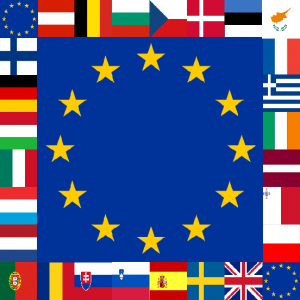By Connor Quirk
In late January, the people of Greece elected a new Prime Minister, Alexis Tsipras. Tsipras, a member of the extreme leftist Syriza party, quickly ascended to power with a few simple promises: end austerity, backtrack on budgetary reforms, and slash Greece’s massive amount of debt by writing it off, not paying it down. In short, he hopes to alleviate economic and budgetary pressure imposed on Greece by the IMF and creditor nations. Tsipras’s plans, while popular in Greece, have been met with scorn by the European Union, which views the Greek government as disorganized and unable to practice fiscal responsibility. However, while this situation is seemingly isolated to one rogue member-state, the crisis in the E.U. is exposes fundamental flaws of the structure of the Union: the combination of European Central Bank dictated monetary policy with state driven regulatory policy and the uniting of different economies throughout Europe under one currency. These factors show that, barring some rapid alignment of individual state’s goals, the Eurozone’s structural inefficiencies may ultimately make them unsustainable.
To qualify for membership in the EU, states must maintain a government that guarantees democracy, protection of basic rights, and the rule of law. In addition, each state must support a market economy which is strong enough to stand independently within the competitive E.U. marketplace. Although unity among the European states can be traced back to the European Coal and Steel Community in 1951, the modern E.U. was not formed until the 1993 Maastricht Treaty. The treaty established a governmental structure among the states and created the “’Euro” currency, which was adopted by participating members of the Eurozone in 1999. By 2008, the Eurozone, which is comprised of all members of the EU that use the euro currency, had expanded to 27 independent nations. Benefits of adopting the euro are numerous. They include eliminating inner-country trade transaction costs and exchange rate risk, simplifying price comparison, stabilizing inflation, lowering interest rates, and liquidating financial markets, among others. However, as recent history has shown, simplifying monetary policy and unifying markets does not always yield simple and predictable results.
While the Maastricht Treaty established a governmental structure between the EU’s member states, substance has never been added to the original form. Mature developed countries such as France, Spain, and Germany, each with their own unique cultural history, form the backbone of the E.U. These member states have autonomous government taxation and spending structures that can vary dramatically. For example, in 2012 Germany’s government expenditures comprised 28 percent of their annual GDP. France’s government spending was notably larger at 47 percent. Additionally, the German economy is driven heavily by exports and accompanying product support. France, on the other hand, exports very little and is powered almost exclusively by services. Rather than maintain customized monetary policy to match their respective needs, these dramatically different markets are regulated by the European Central Bank which, by nature, is unable to uniquely serve these markets. This disparity of culture and economics is brought to light in times of financial crisis as pro-austerity financiers butt heads with more socially minded politicians. This is exemplified by the current conflict between Germany and Greece. Germany, which is pro-austerity and financially stable, is one of the leading opponents of Tsipras and his vision for Greece.

Relying on a single currency contributes to the need for outside financiers to step in during times of crisis rather than allow for markets to freely adjust themselves. To provide some background and understanding, currency serves three purposes: as a common medium of exchange, as a unit to measure economic value, and as a means to store wealth. However, when working in concert with other markets, currency also serves as a balancing mechanism to even out the relative value of goods and services. This is why, depending on market conditions, the cost of a study abroad to Europe can vary dramatically depending on the conversion rate between dollars and Euros. When this mechanism is removed, markets often become saddled with excess capital while the goods and services they produce are not intrinsically worth that value. Take the relationship between Germany and Greece for example. Last year Germany racked up a record trade surplus of 217 billion Euros, driven primarily by the exports referenced above. This trade surplus left Germany with excess capital, capital that they deployed abroad to high growth areas such as Greece, Italy, or Portugal. The lack of a stabilizing currency rate allows weaker economies, such as Greece, to take out loans at a low interest rate, with the supply supported by strong economies such as Germany and the UK. Unfortunately, the economic output of Greece does not afford the ability to repay this debt. The result? Debt debacles seen from 2009 to now which require outside financiers, such as the International Monetary Fund, to step in because markets simply do not have the short-term correction mechanism a multi-currency system provides.
So what does this mean for the survival of the E.U. going forward? In the short term, they will continue to sort through another debt crisis with Greece. In the long run, the E.U. must move in one of two directions. The member states either must converge, pulling regulatory practices, fiscal budgeting, and monetary policy under one roof, or they must step back and allow the Euro to function simply and solely as a currency – no emergency financing, bailouts or austerity measures. Considering the deeply entrenched cultural differences between member-states and the incentives for the regulators of the Eurozone, it is a coin flip on which course is more likely. However, do know that whatever action is taken, the current structure of the E.U. is rife with inefficiency and the battle royale unfolding between newly leftist Greece and fiscally conservative Germany is a symptom, not the condition.

